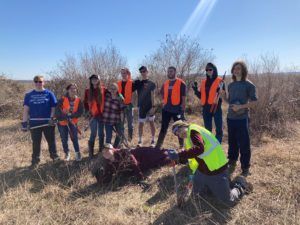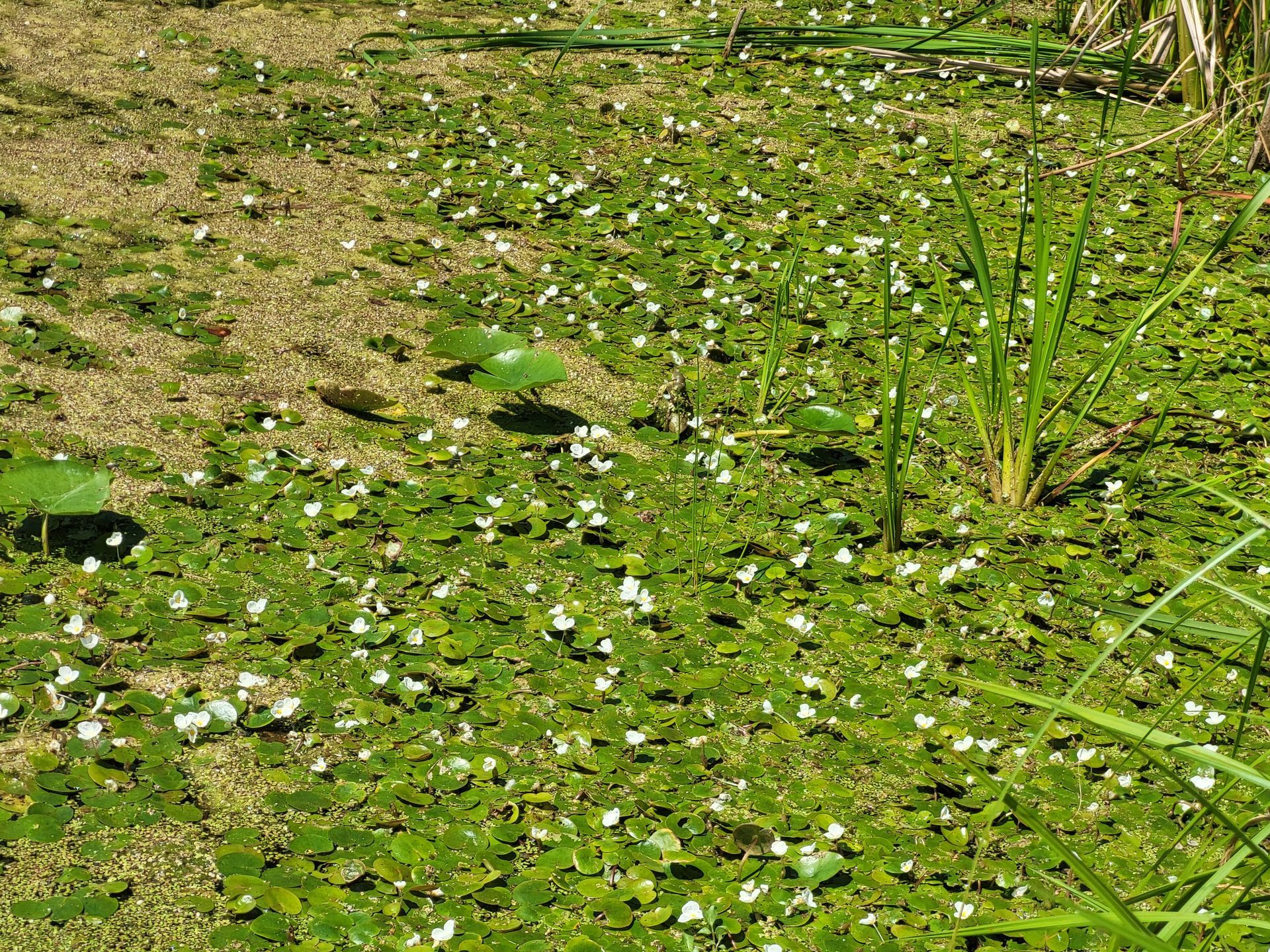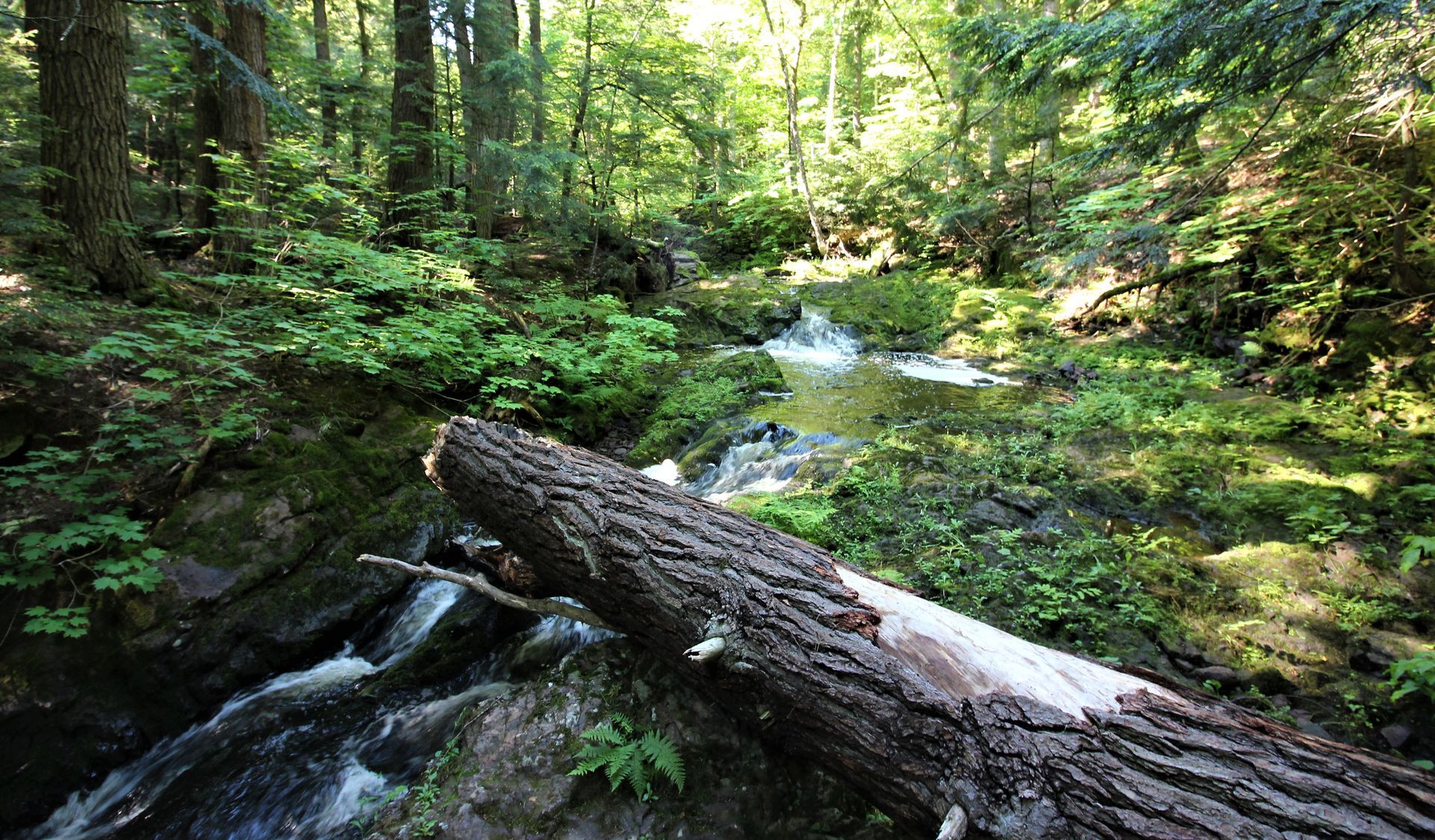On the Ground Junior: Spring Recap and How to Get Your Classroom Involved

High school students remove invasive woody vegetation to help restore a grassland near their school.
Student volunteers were hard at work this spring planting trees, constructing pollinator gardens, removing invasive vegetation from local state game areas, and building brush piles on public land. MUCC’s On the Ground Junior (OTG Jr.) program brings grade-school students into the great outdoors where they can participate in wildlife habitat improvement projects on public land in their own communities.
This spring season, MUCC welcomed 221 students, teachers, and chaperones in participating in multiple OTG Jr. projects throughout the state. In total, these determined volunteers positively impacted over 18 acres of wildlife habitat on public lands from State Game Areas to State Forest Management Units.
A typical OTG Jr. field trip starts with a brief project introduction from MUCC and conservation partner staff. Then the students get to participate in the fun part – from planting trees to spreading wildflower seeds, there’s always habitat work that needs to be done! The goal of this program is to engage and educate students in conservation practices, introduce them to wildlife habitat management practices, and share with them the importance of acting as public land stewards.

Elementary school students learn about native wildflowers from a DNR Wildlife Technician before constructing a pollinator garden near their community.
After the habitat project is completed, MUCC provides participants with lunch. Fun educational games and activities follow lunch as a reward for all of their hard work. This year, students enjoyed archery lessons, waterfowl identification, invasive species scavenger hunts, and other fun natural resource-related activities. During these field trips, we aim to provide students with positive outdoor experiences and encouragement to work as a team to complete meaningful conservation projects that impact the natural areas near them. We hope that students are able to re-visit these sites and see how the habitat changes as their trees grow or the health of their grassland is restored.
OTG Jr. field trips are fully-funded by MUCC and our partners. If you are a grade school instructor and you are interested in getting involved with MUCC’s OTG Jr. program, please contact Habitat Volunteer Coordinator Kristina Kennedy at kkennedy@mucc.org. We would love to work with you and see if there are any habitat improvement projects that need to be completed in your area!
The post On the Ground Junior: Spring Recap and How to Get Your Classroom Involved appeared first on Michigan United Conservation Clubs.
Recent Posts



